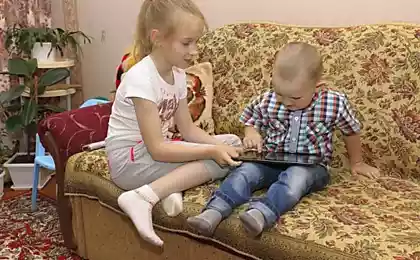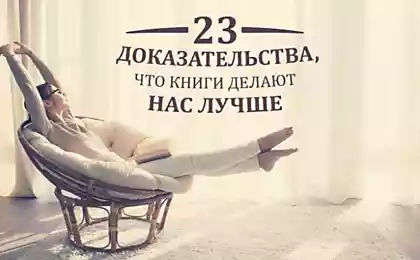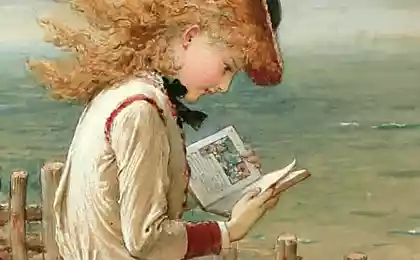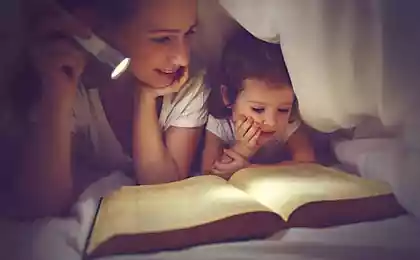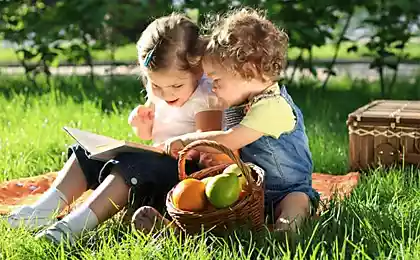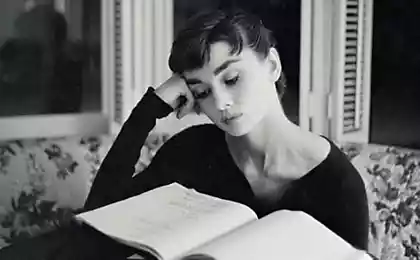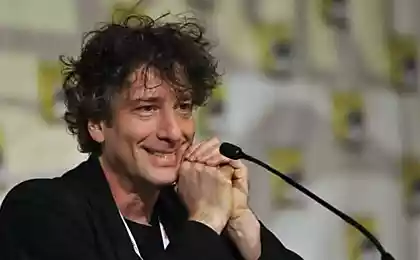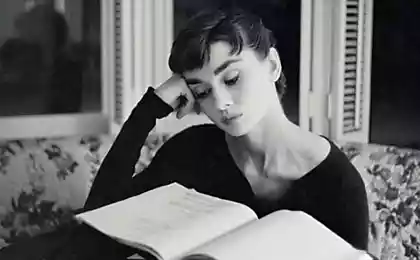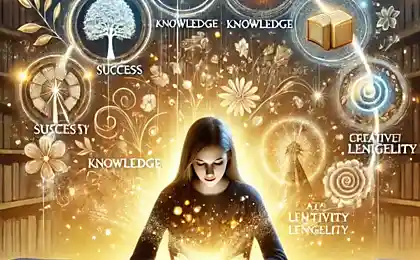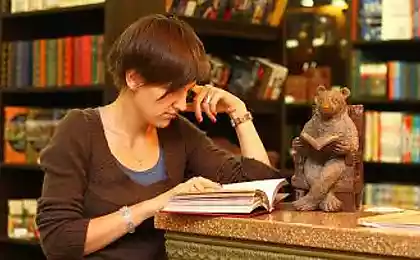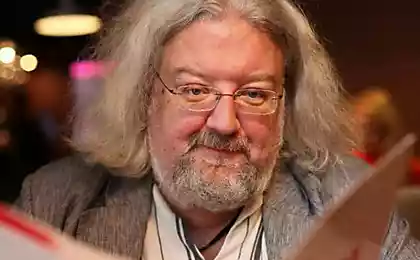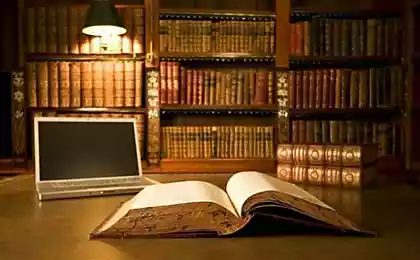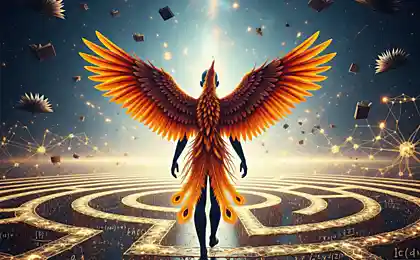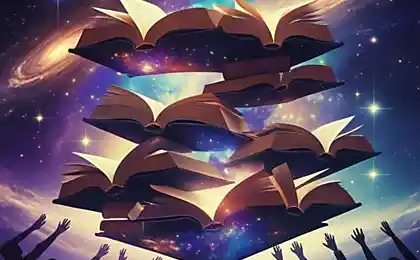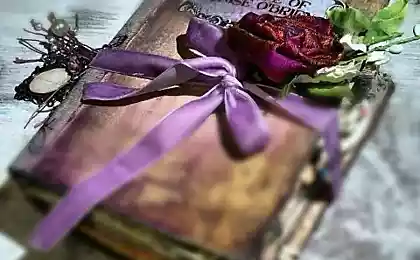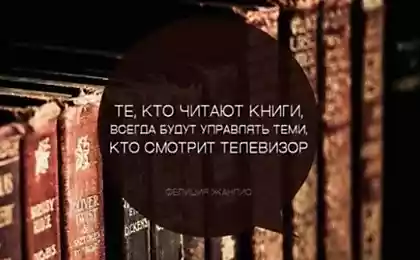774
Neil Gaiman: Smart people read fiction
The famous English writer, Neil Gaiman read distinguished lecture on the nature and benefits of reading. It's not foggy thinking, sometimes so typical of intellectuals, scholars, but very clear, consistent evidence of the seemingly obvious things.
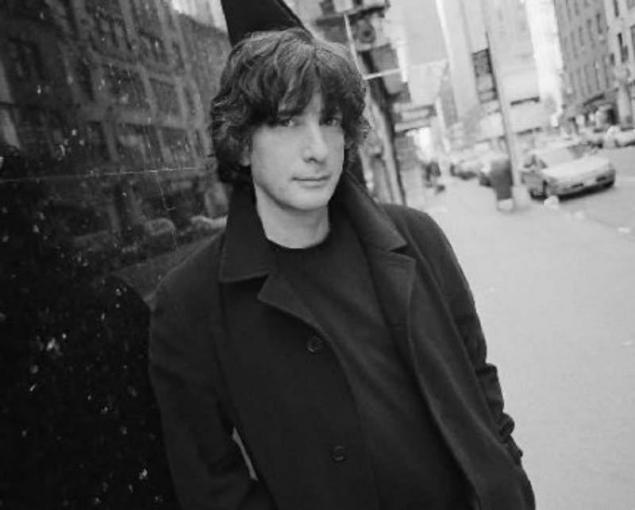
So I'm going to talk to you about reading. I'm going to tell you that libraries are important. I'm going to suggest that reading fiction, reading for pleasure is one of the most important things in a person's life. I'm going with all of the passion beg people to understand what libraries and librarians, and save both phenomena.
And I'm obviously very much biased, because I'm a writer, author of literary texts. I write both for children and for adults. For nearly 30 years, I earn my living with words, mostly making things and writing them down. Certainly I'm interested that people read, so people read fiction to libraries and librarians existed and contributed to a love of reading and to the existence of great places to read.
So I'm biased as a writer. But I am much more biased as a reader. And I'm even more biased as a British citizen.
I give that speech today under the patronage of the reading Agency, a charitable organization whose mission is to give everyone an equal chance in life and to help you become confident and interested readers. This includes support of educational programs, libraries and individuals, as well as candid and unselfish encouragement the act of reading. Because, as they say, everything changes when we read.
It is this change and it was this act of reading – what I want to talk about today. I want to talk about that with us doing the reading. What it created.
One time I was in new York and heard a talk about the construction of private prisons is a rapidly growing industry in America. The prison industry needs to plan its future growth – how many cameras do they need? What is the number of inmates in 15 years? And they found that can predict all of this very easily using a simple algorithm based on surveys, what percentage of 10 and 11-year-old can't read. And of course not to read for pleasure.
There is direct relationship, not to say that in educated society is crime free. But the relationship between the factors is visible..
I think that the most simple of these links come from is obvious. Literate people read fiction.
From literature there are two purposes. First, it gives you dependency on reading. The thirst to know what happens next, the desire to turn the page, the need to continue, even if it is hard, because someone got in trouble, and you need to find out what it's all over...there is a real drive. It makes you learn new words, to think differently, to continue to move forward. To discover that reading itself is a pleasure. Once realizing this, you are on your way to a constant reading. Reading is the key. Several years ago I heard the saying that we live in a "postpromotion" a world where the ability to extract meaning from written text is secondary, but those days are gone.
The word is now more important than ever that we explore the world through words, and as the world slips into the world wide web, we follow him to communicate and understand what we read. People who do not understand each other cannot exchange ideas, cannot communicate, and program translators make it worse.
The simplest way guaranteed to raise literate children is to teach them to read and show that reading is a fun pastime. The simplest way find books that they like, give them access to these books and let them read them.
I don't think there is such a thing as a bad book for children. Again and again it becomes fashionable among adults to point out specific children's books, often on a genre or author, and to declare them bad books, books from the reading that you want to protect children. I've seen it happen again and again, Enid Blyton, was called a bad author, this is what happened to Robert Lawrence Stine, and many others. Comics condemned for what they contribute to illiteracy.
This is nonsense. It is snobbery and stupidity. Are no bad authors for children, if children want to read them and looking for their books, because all children are different. They find they need stories, and they enter into these stories. Beaten a well-worn idea is not beaten and worn out to them. After all, the child opens it first for myself. Not obrashaite children from reading just because you feel like they're reading the wrong things. Literature which you do not like, is the way to books that may be of your liking. And not at all the same with you taste.
Adults with good intentions can easily destroy the love a child to read: protect them from reading what they like, or give them worthy but dull books, these modern equivalents of Victorian "educational" literature. You'll be left with a generation convinced that reading is uncool, or worse, unpleasant.
We need our children to get up on the ladder reading: anything they love, will advance them step by step to literacy. (And never repeat the mistake that the author did when his 11-year-old daughter was reading R. L. Stine. The mistake was to go to her and handing the book by Stephen king "Carrie" with the words "if you love Stein, you'll like it!" Holly read nothing but harmless stories about the settlers in the Prairie, until the end of adolescence, and still glares at me when he hears the name of Stephen king.)
And the second thing that makes fiction, – it generates empathy. When you are watching a TV show or movie, you look at things that happen to other people. Fiction is something you make from 33 letters and a handful of punctuation marks, and you, you alone, using your imagination, create a world, inhabit it and look around through the eyes of strangers. You start to feel things, visit places and worlds you would not know. You will learn that the outside world is also you. You become someone else, and when you return to your world, something in you will change a little bit.
Empathy is the tool that brings people together and allows you not to behave like narcissistic loners.
You will also find in the books something vital to existence in this world. And here it is: the world does not have to be that way. Things can change.

In 2007 I was in China, at the first endorsed by the party Convention for science fiction and fantasy. At some point I asked the official representative of the government: why? Because NF is not frowned upon for a long time. What has changed?
Everything is simple, he told me. The Chinese have created great things, if they are brought scheme. But they did not improve and did not invent themselves. They didn't invent. And so they sent a delegation to the US, to Apple, Microsoft, Google, and asked the people who invented the future, about themselves. And found that they had read science fiction when they were boys and girls.
Literature can show you another world. She can take you to where you've never been. Once visiting other worlds, as those who have tasted the magical fruit, you can never be fully satisfied with the world in which I grew up. Discontent is a good thing. Disgruntled people can change and improve their worlds, to make them better, make them different.
And before we leave the topic, I would like to say a few words about escapism. This term is pronounced as if it were something bad. As if "escapist" literature is a cheap drug, and the need not only confusing, fooled and misled. And the only literature worthy of children and adults, is imitative literature that reflects all the worst in this world.
If you were in an unsolvable situation, in an unpleasant place, among people who didn't wish you anything good, and someone would offer you a temporary departure, would you not have him? It is escapist literature, it is literature that opens the door, shows that on the street the sun, gives the place to go if you control and people with whom you want to be (and books are real places, make no mistake about it). More importantly, during the escape a book can give you knowledge about the world and your troubles, they give you weapons, give you protection genuine things you can take with you to jail. The knowledge and skills that can be used for the present escape.
As John reminds us. R. R. Tolkien - the only people who protest against escape, it is the jailers.
Another way to destroy children's love of reading is, of course, to make sure that next to no books. And there are no places where children could read them. I was lucky. When I was growing up, I had a great regional library. I had parents who could be persuaded to take me to the library on the way to work during the summer holidays. And the librarians who took the lonely little boy, who was returning to the library every morning and studied the card catalogue looking for books with ghosts, magic or rockets in them, books with vampires or mysteries, witches and wonders. And when I read the entire children's library, I set adult books.
They were good librarians. They loved books and loved to read them. They taught me how to order books from other libraries through interlibrary loan. They had no snobbery about what I read. It seemed that they liked the boy with wide open eyes who loved to read. They talked to me about books, they find me other books in the series, they helped. They treated me as an ordinary reader – no more and no less – and that meant they respected me. And in 8 years I got used to the fact that I was respected.
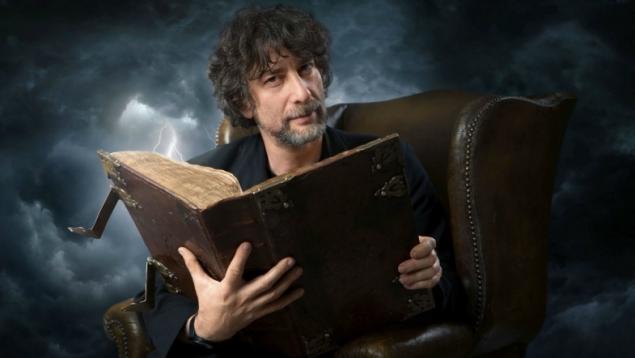
Library is freedom. Freedom to read, freedom to communicate. This education (which is not the end of the day when we leave school or University), it's leisure, it is shelter and access to information.
I'm afraid that in the 21st century people do not quite understand, what is library and what is their purpose. If you perceive a library as a shelf of books, it may seem old and outdated in a world where most, but not all books exist in electronic form. But it is a fundamental error.
I think it's all about the nature of the information. Information has value, and the correct information is invaluable. Throughout human history, we lived in the days of ignorance. To obtain the needed information was always important, and always worth something. When to plant crops, where to find things, maps, history and stories is something that has always been valued for food and in companies. Information was a valuable thing, and those who possess it or have lived it, could count on a reward.
In recent years we have moved away from a lack of information and came to the glut of it. According to Eric Schmidt of Google, now every two days the human race creates as much information as we have produced from the beginning of our civilization up to 2003. It's something about five exabytes per day, if you love numbers. Now the challenge is not how to find a rare flower in the desert, and to locate a specific plant in the jungle. We need help to navigate, to find among this information that we really need.
Libraries are places where people come for information. Books are just the tip of the information iceberg, they are there, and librarians can freely and legally to provide you with the books. More children are borrowing books from libraries than ever before, and it is different books – paper, electronic, audio books. But the library is still, for example, where people who have no computer or Internet access can go online. It is desperately important at a time when we are looking for a job, sent a resume, prepare a pension on the Internet. Librarians can help these people navigate the world.
I don't think all books should hit or will hit the screens. As once remarked Douglas Adams 20 years before the advent of Kindle, paper book is like a shark. Sharks are old, they lived in the ocean before the dinosaurs. And the reason why sharks still exist, is that sharks are all better cope with the role of sharks. Paper books are durable, they are difficult to destroy, they are waterproof, work in sunlight, you are comfortable in your hand – they are good at being books and there will always be a place. They belong to the library, even if the libraries have become a place where you can get access to e-books, audiobooks, DVDs and Internet content.
The library is a repository of information, which gives every citizen equal access to it. This includes information about health. And about mental health. This is a place for communication. It is a quiet place, a refuge from the outside world. It's a place with librarians. What will libraries of the future, we can imagine now.
Literacy has become more important than ever in this world of SMS and e-mails, in a world of written information. We need to read and write, and we need open world citizens who can read comfortably, understand what they read, to understand the nuances and be understandable to others.
Library is really a gate to the future. So very sorry that all over the world, we see how local authorities are considering closing libraries as an easy way to save money, not realizing that they are robbing the future to pay for today. They close the gates that should be open.
According to a recent study by the Organization for Economic cooperation and development, England is the only country where the older population is better trained and more numerous than the population of younger age, if to compare these figures with other factors, such as gender, socio-economic characteristics and type of employment.
In other words, our children and grandchildren not as literate as we are, and they are less than us. They are less able to navigate the world, to understand it, to solve problems. They are easier to deceive and confuse, they have fewer opportunities to change their world, they are less employable. And England as a country will fall under the onslaught of the more developed Nations, because it will be lack of skilled labour.
The book is a way to communicate with the dead. It is a way to learn from those who are no longer with us. Mankind has created itself, evolved, gave rise to a type of knowledge that can be developed, but not always to remember. There are tales that are older than many countries, tales that have survived cultures and walls in which they were first told.
I believe that we have a responsibility to the future. The responsibilities and obligations to children, to adults, which will be these children, in front of the world in which they live.
We are all readers, writers, citizens – have obligations. I will try to formulate some of them.
I believe that we should read for pleasure, alone and in public. If we read for pleasure, if others see us by book, we learn, we train our imagination. We show others that reading is good.
We must support the library. To use libraries, to encourage others to use them, to protest against their closure. If you do not value libraries then you do not value information or culture wisdom. You drown out the voices of the past and future harm.
Should we read aloud to our children. Read to them something that made them happy. Read them stories that we are tired. To speak in different voices, to motivate them and not to stop reading just because they learned how to do it. To make reading aloud a moment, a time when no one is looking at phones when the temptations of the world aside.
We need to use the language. To develop, to learn the meaning of new words and how to use them, to communicate clearly, say what we mean. We should not attempt to freeze language, to pretend that it is a dead thing that must be honored. We must use the language as a living thing that moves, which bears the words, which allows their meanings and pronunciation change over time.
Writers – especially children's writers have obligations to readers. We need to write true things, especially important when we're writing stories about people that didn't exist, or places where there were not understand that truth is not what happened in fact, but what tells us who we are. In the end, fiction is true lies, among other things. We should not bore our readers, but to do so, so they wanted to turn the next page. One of the best remedies for those who read reluctantly – a history from which they cannot break away.
We should be telling our readers the truth, to arm them, to give protection and to convey the wisdom that we had gleaned from our short stay in this green world. We must not preach, lecture, ready to shove the truth down the throats of our readers, as birds that feed their Chicks pre-chewed worms. And we must never, never ever, under any circumstances, to write for kids what we would not like to read themselves.
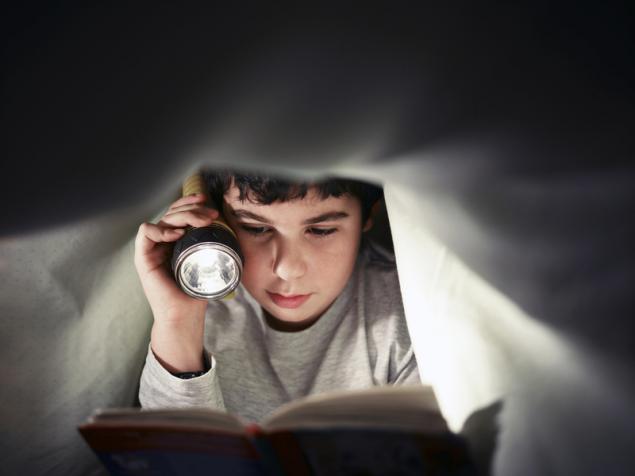
We must understand and recognize that as children's writers we do important work because if we do not manage and write dull books that turn children away from reading and books, we will drain our future and even more prinosim them.
We all – adults and children, writers and readers – must be dreaming. We need to invent. It is easy to pretend that nobody can change that we live in a world where society, and the person is less than nothing, an atom in the wall, the grain in the rice field. But the truth is that individuals change the world again and again, the person creating the future, and they do it imagining that things can be different.
Take a look. I'm serious. Stop for a moment and look at the room in which you are. I want to show something so obvious that it's all been forgotten. Here it is: everything you see, including the walls, was at some point invented. Someone decided that it would be much easier to sit on a chair than on the ground, and came up with a chair. Someone had to think of a way that I could talk with all of you in London right now, without the risk of getting wet. This room and all things in it, all things in the building, in this city, exist because again and again people come up with something.
We need to make things beautiful. Don't make the world uglier than it was to us, not to empty the oceans, not to transfer our problems to future generations. We need to clean up after themselves and not leave our children in a world that we are so stupid ruined, robbed and mutilated.
We should be telling our politicians what we want, to vote against politicians of any party who do not understand the role of reading in forming real citizens, politicians who do not want to act to preserve and protect knowledge and encourage literacy. It's not a matter of politics. It is a question of ordinary humanity.
One day albert Einstein was asked how we can make our children smarter. His answer was simple and wise.If you want your children to be intelligent, he said, read them fairy tales. If you want them to be more intelligent, read them more fairy tales. He understood the value of reading and imagination. I hope that we can pass on to our children a world where they will read and they will read where they will imagine and understand.published
P. S. And remember, only by changing their consumption - together we change the world! ©
Source: busrra.livejournal.com/77534.html

So I'm going to talk to you about reading. I'm going to tell you that libraries are important. I'm going to suggest that reading fiction, reading for pleasure is one of the most important things in a person's life. I'm going with all of the passion beg people to understand what libraries and librarians, and save both phenomena.
And I'm obviously very much biased, because I'm a writer, author of literary texts. I write both for children and for adults. For nearly 30 years, I earn my living with words, mostly making things and writing them down. Certainly I'm interested that people read, so people read fiction to libraries and librarians existed and contributed to a love of reading and to the existence of great places to read.
So I'm biased as a writer. But I am much more biased as a reader. And I'm even more biased as a British citizen.
I give that speech today under the patronage of the reading Agency, a charitable organization whose mission is to give everyone an equal chance in life and to help you become confident and interested readers. This includes support of educational programs, libraries and individuals, as well as candid and unselfish encouragement the act of reading. Because, as they say, everything changes when we read.
It is this change and it was this act of reading – what I want to talk about today. I want to talk about that with us doing the reading. What it created.
One time I was in new York and heard a talk about the construction of private prisons is a rapidly growing industry in America. The prison industry needs to plan its future growth – how many cameras do they need? What is the number of inmates in 15 years? And they found that can predict all of this very easily using a simple algorithm based on surveys, what percentage of 10 and 11-year-old can't read. And of course not to read for pleasure.
There is direct relationship, not to say that in educated society is crime free. But the relationship between the factors is visible..
I think that the most simple of these links come from is obvious. Literate people read fiction.
From literature there are two purposes. First, it gives you dependency on reading. The thirst to know what happens next, the desire to turn the page, the need to continue, even if it is hard, because someone got in trouble, and you need to find out what it's all over...there is a real drive. It makes you learn new words, to think differently, to continue to move forward. To discover that reading itself is a pleasure. Once realizing this, you are on your way to a constant reading. Reading is the key. Several years ago I heard the saying that we live in a "postpromotion" a world where the ability to extract meaning from written text is secondary, but those days are gone.
The word is now more important than ever that we explore the world through words, and as the world slips into the world wide web, we follow him to communicate and understand what we read. People who do not understand each other cannot exchange ideas, cannot communicate, and program translators make it worse.
The simplest way guaranteed to raise literate children is to teach them to read and show that reading is a fun pastime. The simplest way find books that they like, give them access to these books and let them read them.
I don't think there is such a thing as a bad book for children. Again and again it becomes fashionable among adults to point out specific children's books, often on a genre or author, and to declare them bad books, books from the reading that you want to protect children. I've seen it happen again and again, Enid Blyton, was called a bad author, this is what happened to Robert Lawrence Stine, and many others. Comics condemned for what they contribute to illiteracy.
This is nonsense. It is snobbery and stupidity. Are no bad authors for children, if children want to read them and looking for their books, because all children are different. They find they need stories, and they enter into these stories. Beaten a well-worn idea is not beaten and worn out to them. After all, the child opens it first for myself. Not obrashaite children from reading just because you feel like they're reading the wrong things. Literature which you do not like, is the way to books that may be of your liking. And not at all the same with you taste.
Adults with good intentions can easily destroy the love a child to read: protect them from reading what they like, or give them worthy but dull books, these modern equivalents of Victorian "educational" literature. You'll be left with a generation convinced that reading is uncool, or worse, unpleasant.
We need our children to get up on the ladder reading: anything they love, will advance them step by step to literacy. (And never repeat the mistake that the author did when his 11-year-old daughter was reading R. L. Stine. The mistake was to go to her and handing the book by Stephen king "Carrie" with the words "if you love Stein, you'll like it!" Holly read nothing but harmless stories about the settlers in the Prairie, until the end of adolescence, and still glares at me when he hears the name of Stephen king.)
And the second thing that makes fiction, – it generates empathy. When you are watching a TV show or movie, you look at things that happen to other people. Fiction is something you make from 33 letters and a handful of punctuation marks, and you, you alone, using your imagination, create a world, inhabit it and look around through the eyes of strangers. You start to feel things, visit places and worlds you would not know. You will learn that the outside world is also you. You become someone else, and when you return to your world, something in you will change a little bit.
Empathy is the tool that brings people together and allows you not to behave like narcissistic loners.
You will also find in the books something vital to existence in this world. And here it is: the world does not have to be that way. Things can change.

In 2007 I was in China, at the first endorsed by the party Convention for science fiction and fantasy. At some point I asked the official representative of the government: why? Because NF is not frowned upon for a long time. What has changed?
Everything is simple, he told me. The Chinese have created great things, if they are brought scheme. But they did not improve and did not invent themselves. They didn't invent. And so they sent a delegation to the US, to Apple, Microsoft, Google, and asked the people who invented the future, about themselves. And found that they had read science fiction when they were boys and girls.
Literature can show you another world. She can take you to where you've never been. Once visiting other worlds, as those who have tasted the magical fruit, you can never be fully satisfied with the world in which I grew up. Discontent is a good thing. Disgruntled people can change and improve their worlds, to make them better, make them different.
And before we leave the topic, I would like to say a few words about escapism. This term is pronounced as if it were something bad. As if "escapist" literature is a cheap drug, and the need not only confusing, fooled and misled. And the only literature worthy of children and adults, is imitative literature that reflects all the worst in this world.
If you were in an unsolvable situation, in an unpleasant place, among people who didn't wish you anything good, and someone would offer you a temporary departure, would you not have him? It is escapist literature, it is literature that opens the door, shows that on the street the sun, gives the place to go if you control and people with whom you want to be (and books are real places, make no mistake about it). More importantly, during the escape a book can give you knowledge about the world and your troubles, they give you weapons, give you protection genuine things you can take with you to jail. The knowledge and skills that can be used for the present escape.
As John reminds us. R. R. Tolkien - the only people who protest against escape, it is the jailers.
Another way to destroy children's love of reading is, of course, to make sure that next to no books. And there are no places where children could read them. I was lucky. When I was growing up, I had a great regional library. I had parents who could be persuaded to take me to the library on the way to work during the summer holidays. And the librarians who took the lonely little boy, who was returning to the library every morning and studied the card catalogue looking for books with ghosts, magic or rockets in them, books with vampires or mysteries, witches and wonders. And when I read the entire children's library, I set adult books.
They were good librarians. They loved books and loved to read them. They taught me how to order books from other libraries through interlibrary loan. They had no snobbery about what I read. It seemed that they liked the boy with wide open eyes who loved to read. They talked to me about books, they find me other books in the series, they helped. They treated me as an ordinary reader – no more and no less – and that meant they respected me. And in 8 years I got used to the fact that I was respected.

Library is freedom. Freedom to read, freedom to communicate. This education (which is not the end of the day when we leave school or University), it's leisure, it is shelter and access to information.
I'm afraid that in the 21st century people do not quite understand, what is library and what is their purpose. If you perceive a library as a shelf of books, it may seem old and outdated in a world where most, but not all books exist in electronic form. But it is a fundamental error.
I think it's all about the nature of the information. Information has value, and the correct information is invaluable. Throughout human history, we lived in the days of ignorance. To obtain the needed information was always important, and always worth something. When to plant crops, where to find things, maps, history and stories is something that has always been valued for food and in companies. Information was a valuable thing, and those who possess it or have lived it, could count on a reward.
In recent years we have moved away from a lack of information and came to the glut of it. According to Eric Schmidt of Google, now every two days the human race creates as much information as we have produced from the beginning of our civilization up to 2003. It's something about five exabytes per day, if you love numbers. Now the challenge is not how to find a rare flower in the desert, and to locate a specific plant in the jungle. We need help to navigate, to find among this information that we really need.
Libraries are places where people come for information. Books are just the tip of the information iceberg, they are there, and librarians can freely and legally to provide you with the books. More children are borrowing books from libraries than ever before, and it is different books – paper, electronic, audio books. But the library is still, for example, where people who have no computer or Internet access can go online. It is desperately important at a time when we are looking for a job, sent a resume, prepare a pension on the Internet. Librarians can help these people navigate the world.
I don't think all books should hit or will hit the screens. As once remarked Douglas Adams 20 years before the advent of Kindle, paper book is like a shark. Sharks are old, they lived in the ocean before the dinosaurs. And the reason why sharks still exist, is that sharks are all better cope with the role of sharks. Paper books are durable, they are difficult to destroy, they are waterproof, work in sunlight, you are comfortable in your hand – they are good at being books and there will always be a place. They belong to the library, even if the libraries have become a place where you can get access to e-books, audiobooks, DVDs and Internet content.
The library is a repository of information, which gives every citizen equal access to it. This includes information about health. And about mental health. This is a place for communication. It is a quiet place, a refuge from the outside world. It's a place with librarians. What will libraries of the future, we can imagine now.
Literacy has become more important than ever in this world of SMS and e-mails, in a world of written information. We need to read and write, and we need open world citizens who can read comfortably, understand what they read, to understand the nuances and be understandable to others.
Library is really a gate to the future. So very sorry that all over the world, we see how local authorities are considering closing libraries as an easy way to save money, not realizing that they are robbing the future to pay for today. They close the gates that should be open.
According to a recent study by the Organization for Economic cooperation and development, England is the only country where the older population is better trained and more numerous than the population of younger age, if to compare these figures with other factors, such as gender, socio-economic characteristics and type of employment.
In other words, our children and grandchildren not as literate as we are, and they are less than us. They are less able to navigate the world, to understand it, to solve problems. They are easier to deceive and confuse, they have fewer opportunities to change their world, they are less employable. And England as a country will fall under the onslaught of the more developed Nations, because it will be lack of skilled labour.
The book is a way to communicate with the dead. It is a way to learn from those who are no longer with us. Mankind has created itself, evolved, gave rise to a type of knowledge that can be developed, but not always to remember. There are tales that are older than many countries, tales that have survived cultures and walls in which they were first told.
I believe that we have a responsibility to the future. The responsibilities and obligations to children, to adults, which will be these children, in front of the world in which they live.
We are all readers, writers, citizens – have obligations. I will try to formulate some of them.
I believe that we should read for pleasure, alone and in public. If we read for pleasure, if others see us by book, we learn, we train our imagination. We show others that reading is good.
We must support the library. To use libraries, to encourage others to use them, to protest against their closure. If you do not value libraries then you do not value information or culture wisdom. You drown out the voices of the past and future harm.
Should we read aloud to our children. Read to them something that made them happy. Read them stories that we are tired. To speak in different voices, to motivate them and not to stop reading just because they learned how to do it. To make reading aloud a moment, a time when no one is looking at phones when the temptations of the world aside.
We need to use the language. To develop, to learn the meaning of new words and how to use them, to communicate clearly, say what we mean. We should not attempt to freeze language, to pretend that it is a dead thing that must be honored. We must use the language as a living thing that moves, which bears the words, which allows their meanings and pronunciation change over time.
Writers – especially children's writers have obligations to readers. We need to write true things, especially important when we're writing stories about people that didn't exist, or places where there were not understand that truth is not what happened in fact, but what tells us who we are. In the end, fiction is true lies, among other things. We should not bore our readers, but to do so, so they wanted to turn the next page. One of the best remedies for those who read reluctantly – a history from which they cannot break away.
We should be telling our readers the truth, to arm them, to give protection and to convey the wisdom that we had gleaned from our short stay in this green world. We must not preach, lecture, ready to shove the truth down the throats of our readers, as birds that feed their Chicks pre-chewed worms. And we must never, never ever, under any circumstances, to write for kids what we would not like to read themselves.

We must understand and recognize that as children's writers we do important work because if we do not manage and write dull books that turn children away from reading and books, we will drain our future and even more prinosim them.
We all – adults and children, writers and readers – must be dreaming. We need to invent. It is easy to pretend that nobody can change that we live in a world where society, and the person is less than nothing, an atom in the wall, the grain in the rice field. But the truth is that individuals change the world again and again, the person creating the future, and they do it imagining that things can be different.
Take a look. I'm serious. Stop for a moment and look at the room in which you are. I want to show something so obvious that it's all been forgotten. Here it is: everything you see, including the walls, was at some point invented. Someone decided that it would be much easier to sit on a chair than on the ground, and came up with a chair. Someone had to think of a way that I could talk with all of you in London right now, without the risk of getting wet. This room and all things in it, all things in the building, in this city, exist because again and again people come up with something.
We need to make things beautiful. Don't make the world uglier than it was to us, not to empty the oceans, not to transfer our problems to future generations. We need to clean up after themselves and not leave our children in a world that we are so stupid ruined, robbed and mutilated.
We should be telling our politicians what we want, to vote against politicians of any party who do not understand the role of reading in forming real citizens, politicians who do not want to act to preserve and protect knowledge and encourage literacy. It's not a matter of politics. It is a question of ordinary humanity.
One day albert Einstein was asked how we can make our children smarter. His answer was simple and wise.If you want your children to be intelligent, he said, read them fairy tales. If you want them to be more intelligent, read them more fairy tales. He understood the value of reading and imagination. I hope that we can pass on to our children a world where they will read and they will read where they will imagine and understand.published
P. S. And remember, only by changing their consumption - together we change the world! ©
Source: busrra.livejournal.com/77534.html

